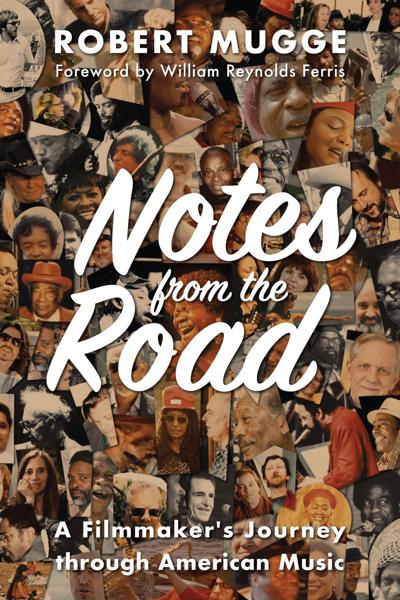
Few filmmakers have taken audiences more deeply inside both the process of making music and the personalities of its most exciting and creative figures than Robert Mugge. He’s among a select group that also includes such greats as Les Blank and D.A. Pennebaker. Anyone unfortunate enough not to have seen any of his 30-plus films — most of them music documentaries — can get a comprehensive view of Mugge’s magnificent cinematic legacy through his new volume Notes From the Road: A Filmmaker’s Journey Through American Music.
Mugge will be among the guests at this month’s Southern Festival of Books. (More on that in this week’s cover package.) He’ll devote 35 of the presentation’s 60 minutes to showing brief excerpts from four of his earliest films: Sun Ra: A Joyful Noise (1980), Gospel According to Al Green (1984), The Return of Rubén Blades (1985) and Saxophone Colossus, his 1986 work on jazz legend Sonny Rollins. The remaining time will be devoted to a discussion of his new volume, plus audience questions.
During a recent email interview, Mugge cites a dual obsession with music and cinema as prime early motivation.
“Coming out of college, I had two key interests: music and film,” Mugge says. “An obvious way to pursue both was to make films on music-related subjects. Of course, I’ve always felt that the best music films are about more than just music. So even when my primary concerns have been musical styles, genres, performers, composers, etc., I’ve still managed to examine human personality, racial and ethnic identity, religious belief, political doctrine, social interaction, cultural tradition, regional geography and community support, because these inform our understanding of the worlds out of which traditional music emerges.”
Mugge’s films have covered a wide spectrum of styles and genres, from jazz and blues to reggae, Tex-Mex, zydeco and Hawaiian. One of his earliest films spotlighted Pulitzer-winning classical composer George Crumb.
“I’m drawn to big talent, unique (often eccentric) personalities, and compelling background stories,” Mugge says when asked how he chooses his subjects. “For example, with Al Green, I was able to capture one of the world’s great singers at the peak of his powers, while also examining his sometimes traumatic personal life, various notions of love (from the romantic to the spiritual), and the connections between African American sacred music and secular music.”
Mugge cites Stephen Sondheim, Allen Toussaint, Carla Bley, Dion DiMucci, Julius Hemphill and Harlan Howard as some of the artists he’s wanted to profile but hasn’t been able to for various reasons — from unexpected deaths to difficulties obtaining the necessary funding. Though he hesitates to label any single film a favorite, he mentions those with which he’s had the deepest emotional ties.
“Seriously, I love all my films for one reason or another, because I make each of them out of a desire to learn and experience new things, and to bring attention to artists I genuinely care about,” Mugge says. “But among those to which I have the strongest emotional connections are Gospel According to Al Green, Sun Ra: A Joyful Noise, Saxophone Colossus with Sonny Rollins, Hawaiian Rainbow, The Kingdom of Zydeco, Blues Divas, New Orleans Music in Exile and, well, all of them.”
After having compiled such an impressive array of films, Mugge’s now in reflective mode — though he admits there remain some elusive projects.
“Of course (some remain),” he says. “But I rarely approach artists about a project until I have a sense of where I can get financial backing, and I’ve grown tired of fundraising to the point where I now prefer writing to filmmaking. I do plan to make more films, but right now, I’m enjoying more solitary projects like my recently released memoir.”





